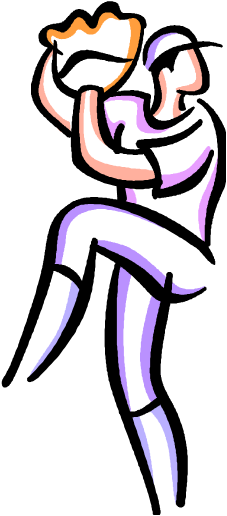 There are many lessons that I have learned in my adult life. One of them had to do with saying, “I don’t know.” Who knows why this was so difficult? I just know that years went by after I got married and my wife swears that she never heard those words from me.
There are many lessons that I have learned in my adult life. One of them had to do with saying, “I don’t know.” Who knows why this was so difficult? I just know that years went by after I got married and my wife swears that she never heard those words from me.
“Where is the place that we are going?” she would ask. My answer was always, “Don’t worry, we’ll find it.” My motto was that we weren’t lost until we ran out of gas. (Note: If you have the same motto, always leave home with a full tank.)
Well, the cure for my malady was children. We have two and they are questioning machines.
“Dad, how much does that building weigh?”
“Daddy, is a gazelle faster than a horse? Which one is taller? Which one lives longer?”
“Dad, who was the best baseball player ever? Who was the second best? …”
Questions can tumble from their mouths faster than water goes over Niagara Falls. There is no defense except to admit the obvious – I don’t know. (Perhaps I know a few things. I am pretty sure that a horse is usually taller than a gazelle.)
It occurs to me that we learn a lot about life and business from the questions that are asked. Sometimes we also learn from the questions that are not asked. Of course we learn from the answers. How an organization deals with questions, answers and change say a lot about them.
What can you learn about a business by their competitive intelligence questions? Here are some ideas.

 Certainty is a virtue, isn’t it?
Certainty is a virtue, isn’t it? 
 That’s when it happened.
That’s when it happened. I was reading my local newspaper this morning. In the sports section, there was an article extolling the positive impact that the new pitching coach had had on the professional baseball team in my area. All of the pitchers were suddenly pitching better. More strikes, longer outings and more wins seem to be rule instead of the rare exception that we had enjoyed in past years. What had made the difference, the new pitching coach was asked. Was he emphasizing new techniques or trickier pitches? Maybe he was having all of the pitchers exercise more or differently than before? Perhaps it was not only the pitchers but the also the catchers (who usually decide what kind of pitch – fastball, curve, change up – that the pitcher throws) that had improved?
I was reading my local newspaper this morning. In the sports section, there was an article extolling the positive impact that the new pitching coach had had on the professional baseball team in my area. All of the pitchers were suddenly pitching better. More strikes, longer outings and more wins seem to be rule instead of the rare exception that we had enjoyed in past years. What had made the difference, the new pitching coach was asked. Was he emphasizing new techniques or trickier pitches? Maybe he was having all of the pitchers exercise more or differently than before? Perhaps it was not only the pitchers but the also the catchers (who usually decide what kind of pitch – fastball, curve, change up – that the pitcher throws) that had improved?